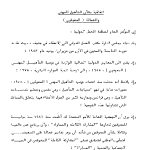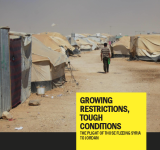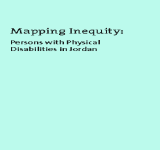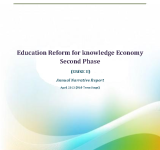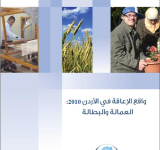people with disabilities
يستند مضمون هذا التقرير المتعلق بالأردن إلى حد كبير إلى زيارة بحثية قامت بها منظمة العفو الدولية إلى البلاد في يونيو/حزيران 2013. وقد التقى وفد المنظمة بممثلي السلطات الأردنية ووكالات الأمم المتحدة والوكالات الإنسانية الدولية والمنظمات غير الحكومية والجمعيات الخيرية;; فضلاً عن أكثر من 150 لاجئاً من سوريا في مجتمعات اللجوء والمجتمعات المضيفة. ونشرت منظمة العفو الدولية هذا التقرير بهدف لفت الانتباه إلى الصعوبات التي يواجهها الفارون من سوريا طلباً للسلامة. وفي الوقت الذي يركز فيه التقرير بشكل رئييس على الأوضاع في الأردن;; فإنه يتضمن تحديثا للمعلومات التي كانت المنظمة قد نشرتها في السابق بشأن التحديات التي يواجهها اللالجئون من سوريا في البلدان المجاورة. وقد أمعنت منظمة العفو الدولية النظر في التحديات التي يواجهها اللاجئون في الأردن;; ولا سيما أولئك الذين يقطنون في مخيم الزعتري;; وهو أضخم مخيمات اللاجئين من سوريا في الأردن. وأجرت المنظمة تحقيقاً حول معاناة اللاجئين;; ليس من ظروف المعيشة القاسية في الصحراء فحسب;; وإنما أيضاً من ارتفاع معدلات الجريمة وغيرها من المخاوف الأمنية.
This report adopts a rights-based approach to map the access of persons with physical disabilities to social services in Jordan and assess the extent to which they enjoy equal opportunities and are socially integrated. The rights-based approach calls for a thorough assessment of the “4 A’s”;; i.e. the availability;; accessibility;; adaptability and acceptability of social services for all members of society. It thus puts special emphasis on the environmental factors and policy gaps constraining the “4 A’s” and preventing the social integration of vulnerable groups. Accordingly;; the objectives of this study are (a) to set forth the social;; legal and institutional barriers preventing persons with physical disabilities in Jordan from fully enjoying their right to education;; health;; employment and social protection and (b) to gauge the ability of social policies to lift these barriers and facilitate the overcoming of inequity for this group.
The second phase of the Program Education Reform for the Knowledge Economy Program (ERfKE II) continues to build on the achievements of the first phase and follow the same implementation arrangements that have proven to be successful in (ERfKE I);; and in the same time;; focuses on schools as the locus of change as well as on the need to enhance capacity building at the central and field levels. The development objective of (ERfKE II) is to provide students enrolled in pre-tertiary education institutions in Jordan with increased levels of skills to participate in knowledge economy. Also the Mid-Term review highlighted the concrete progress achieved by (ERfKE II) in several key areas related to policy development;; quality of education interventions and school construction;; and identified the key issues as a summary of the overall progress that will be tackled and addressed during the remaining stage of implementation.
تقرير تحليلي للنتائج الرئيسية لمسح الإعاقة في الأردن;; الذي نفذته الدائرة خلال شهر تشرين الثاني 2010 بدعم من المجلس الأعلى لشؤون الأشخاص المعوقين. وغطى المسح عينة من الأسر بلغ حجمها حوالي (13) ألف أسرة بصورة تضمن التمثيل على مستوى المملكة والحضر والريف والأقاليم الثلاثة والمحافظات. واستندت هذه العينة إلى الإطار الذي وفرته نتائج التعداد العام للسكان والمساكن لعام 2004. ويهدف هذا التقرير بشكل رئيسي إلى إعطاء صورة عن مدى انتشار الإعاقة في الأردن;; والإعاقات الأكثر انتشاراً بين أفراد المجتمع الأردني;; ويتضمن التقرير منهجية المسح وأسلوب جمع البيانات والنتائج التحليلية.
